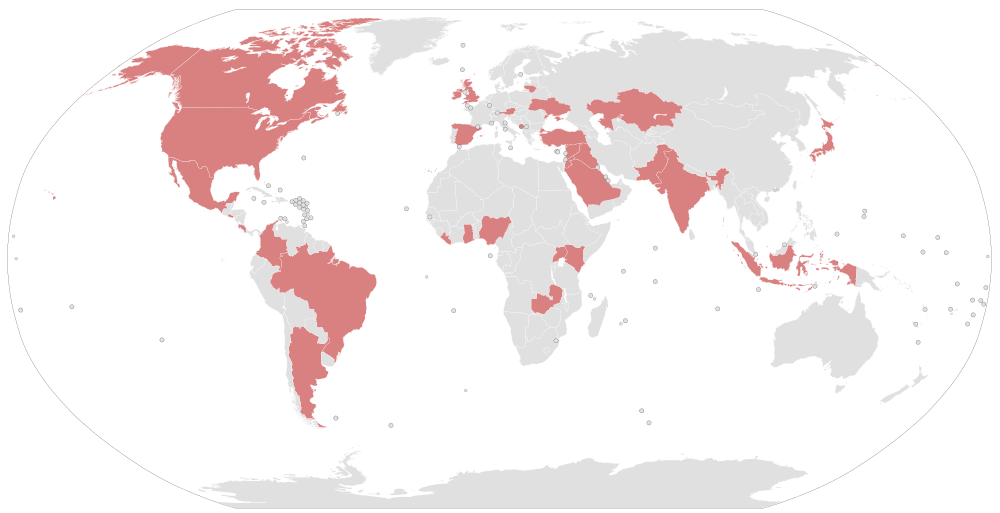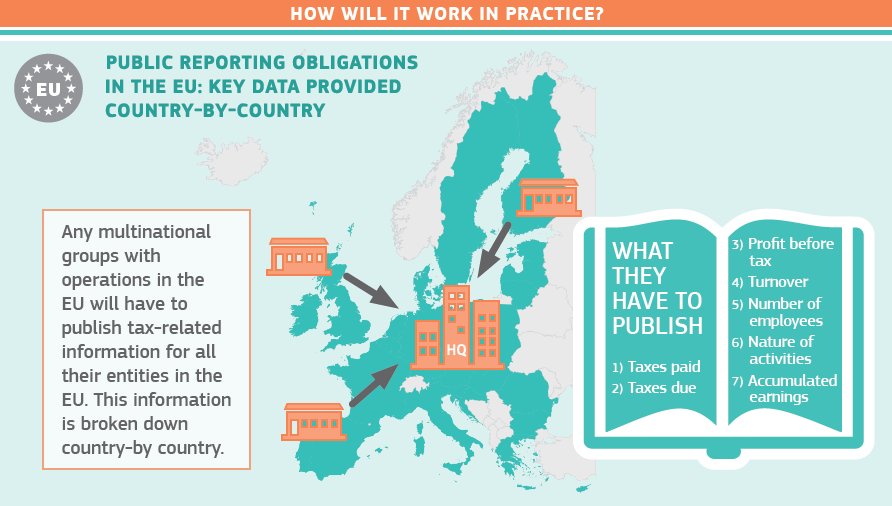The release of the Paradise Papers has drawn attention to international calls for greater tax transparency to tackle the issues raised by the leak of millions of documents detailing the offshore behaviour of some of the world’s richest people and corporations.
Along with a renewed push for the creation of public beneficial ownership registers to stop the use of anonymous companies for illicit purposes, debate has focused on how a transparency measure called public country-by-country reporting – or public CBCR – may help dissuade multinational corporations from shifting their profits to tax havens or low tax jurisdictions.

Calls for action on this issue from campaigners including the Tax Justice Network, Tax Justice UK, Oxfam and Transparency International have been echoed by politicians from Labour leader Jeremy Corbyn and a cross-party selection of UK MPs to MEPs and the European Commission’s Taxation and Customs Union. Some large companies and investors have also spoken out in favour. 78% of British voters would be in favour of public CBCR for multinationals present in UK, according to a new YouGov poll conducted for Oxfam.
So what is public CBCR and what steps could politicians take to use it to shine a light on tax avoidance behaviour?
What is country-by-country reporting?
CBCR requires that corporations publish information about their economic activities in all of the countries where they operate. This includes information on the taxes they pay, the number of people they employ and the profits they report.
In February, as part of our Open Data for Tax Justice project, Open Knowledge International published a white paper co-authored by Alex Cobham, Jonathan Gray and Richard Murphy which examined the prospects for creating a global public database on the tax contributions and economic activities of multinationals as measured by CBCR.
This found that such a public database was possible and that a pilot database could be created by bringing together the best existing source of public CBCR information – disclosures made by European Union banking institutions in line with the Capital Requirements Directive IV (CRD IV) passed in 2013. In July, we took the first steps towards the creation of this pilot.

What should be done now?
While our white paper found that some sources of public CBCR are available now, debates on expanding this measure to apply to a wider range of corporations have been slow to progress in the UK and across Europe.
The UK took the lead by legislating in favour of public country-by-country reporting in the 2016 Finance Act. But the final cross-party amendment from Caroline Flint MP did not include an implementation date and the UK government now says it will only “support the development of a public country-by-country reporting model that operates on a multilateral basis”.
In July 2017, the European Parliament voted in favour of requiring all large multinational corporations to publish public CBCR information as open data. But this issue has now been passed over to the Council of the European Union for them to consider how to proceed and it is unclear how or when a decision by EU member states will be taken.
The issue will continue to be debated in coming weeks. On 22nd November, Nigel Mills MP will lead a debate on public CBCR at the Houses of Parliament in the UK. Oxfam have called on the UK government to enforce comprehensive public CBCR for UK companies by the end of 2019.
Shortly afterwards, a special Paradise Papers hearing will be held at the European Parliament on 28th November. And in early December, the final recommendations from the Panama Papers committee at the European Parliament which call for “the need of an ambitious public country-by-country reporting (CBCR) in order to enhance tax transparency and public scrutiny of multinational enterprises (MNEs)” are due to be voted on by MEPs.
To tackle the issues exposed by the Paradise Papers, we urge the UK government to take the lead by putting their 2016 powers into action and encourage the European Parliament and EU Council to endorse swift moves towards public CBCR to help expose and tackle profit shifting by multinational corporations.
Please email contact@datafortaxjustice.net if you’d like to be added to the Open Data for Tax Justice mailing list or want to join the Open Data for Tax Justice network. You can also follow the #OD4TJ hashtag on Twitter for updates.

Stephen Abbott Pugh was content development manager for the Open Knowledge Foundation.








